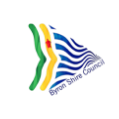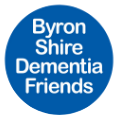Social interaction
When it comes to the health of our older population, social isolation and loneliness are important issues, with the effect of social isolation and loneliness on people’s mortality being compared to that of smoking, obesity, and physical inactivity. However, according to the World Health Organization, high-quality social connections are essential to our mental and physical health and our well-being and can combat loneliness to increase longevity, physical and mental health, and quality of life.
Social interaction has been shown to be a simple and effective method to decrease advanced cognitive impairment and improves the emotional wellbeing of people living with dementia. Day programs such as Social Support Groups and Centre-based Respite take into account people’s care preferences, individual qualities, interests and talents and allow opportunities for our loved-ones to engage in activities and social interactions. Activities that occur during day programs and regular social interaction in a group atmosphere:
- Activate memories and allow opportunities to share stories with others
- Maintain community connections
- Activate the area of the brain associated with language
- May improve quality of life and reduce aggression, agitation and pain
- Help the person maintain a sense of control of their life
- Support Carers with additional respite to allow them opportunities to pursue their own interests outside the caring role.
A 2023 study from the University of New South Wales found that frequent interactions (which may be monthly or weekly) with family and friends and regular conversation greatly reduces the risk of dementia. They also found that living with others and engaging in community activities enhances longevity. Research shows that at least one hour of social interaction per week, when combined with a strong personal care regimen can reduce the risk of severe cognitive impairment and improve our quality of life.
Quality social interaction is a low cost alternative to other medical interventions when it comes to living with cognitive decline or dementia. A small amount of time invested each day can greatly improve our lives.
For more information about this study, visit: https://newsroom.unsw.edu.au/news/health/social-interaction-reduces-dementia-risk-and-increases-longevity-study
Climate change and health
According to NSW Health, climate change can affect health and wellbeing in many ways. For example, exposure to higher temperatures can cause heat stroke or heat exhaustion. Therefore it’s important to:
- Keep cool and stay hydrated
- Plan ahead to beat the heat
- Learn the signs, symptoms and first-aid for heat-related illness
Changes to our climate may have increased the frequency of flood and bushfire, which in turn leads to more injury and death. However, climate also affects health and wellbeing in less direct ways, such as lung and heart health that can be affected by air pollution events. Other ways people may be affected are:
- Anxiety and depression may increase in communities where extreme weather displaces people from their homes and impacts their livelihoods.
- Food and water-borne disease may increase with rising temperatures.
- Mosquito-borne disease may spread more easily under warmer and wetter weather conditions.
- Poor nutrition can result from a decrease in the supply and affordability of healthy food due to extreme weather.
- Allergies may worsen due to changes to pollen seasons and conditions that promote mould growth.
Everyone is likely to be impacted by extreme weather, but some people will be more at risk, depending on where they live, work they do, age, existing health conditions and their social and economic situation.
Older people
Older people are more at risk of heat-related illness because the ability of the body to regulate body temperature declines with age. They are more likely to have chronic disease or take medications that increase the impacts of heat. Being less mobile, drinking less fluids and living alone can also increase heat-related health risks. Older people are also more vulnerable to injury and other health effects during storms, floods and other extreme weather events.
People with chronic health conditions
Some people with chronic health conditions such as heart, lung and kidney disease are more at risk of the health effects of heat, bushfire smoke and dust storms.
Extreme weather events also impact people with depression, anxiety and other mental health conditions. In addition, when extreme weather events affect public transport timetables and healthcare infrastructure, people with chronic health conditions, especially those with restricted mobility, are less able to access healthcare services, medicines and social support.
If you have smart phone access, you can stay up to date by downloading the Hazards Near Me App. This is available on both Apple and Android devices. For more information, visit: https://www.health.nsw.gov.au/environment/climate/Pages/climate-change-and-health.aspx
Signs and symptoms of heat related illness
- Headache, dizziness, nausea, vomiting and confusion
- Flushed, hot and unusually dry skin
- Extreme thirst
- A dry, swollen tongue
- Sudden rise in body temperature to more than 40°C
- Increased disorientation or delirium
- Slurred speech
- Aggression or strange behaviours
- Convulsions, seizures or coma
- Sweating and/or skin that feels deceptively cool
- Rapid pulse.
If you are experiencing any of these symptoms, please seek assistance from your local GP or emergency department.
Upcoming Education Session for Family Carers
Carer Wellbeing Days
Carers NSW is hosting two Carer Wellbeing Days in Ocean Shores and Murwillumbah. Carer Wellbeing Days provide an opportunity for carers to connect, receive information on services and supports available for carers and to experience some self-care and fun activities.
LOCATION: Ocean Shores Tavern, 84 Rajah Road, Ocean Shores, NSW
DATE: Wed 21st Feb
TIME: 9:30am – 2:30pm
RSVP: Damien damienw@carersnsw.org.au 0475 852 001 OR Christine
christined@carersnsw.org.au 0497 176 945
LOCATION: Murwillumbah Community Centre, Nullum St. DATE: Thurs 22rd Feb
TIME: 9:30am – 2:30pm
RSVP: Damien damienw@carersnsw.org.au 0475 852 001 OR Christine
christined@carersnsw.org.au 0497 176 945
For more information, or to learn more about Carers NSW, please visit www.carergateway.gov.au
Dementia Australia are also running Family Carer Education Sessions online and in Ballina.
Driving and Dementia
LOCATION: Online
DATE: Tuesday 5th March
TIME: 1:00 – 2:45pm
REGISTER ONLINE: www.dementia.org.au/ events/driving-and-dementia-18
Considering Residential Care
LOCATION: Online DATE: Tuesday 5th March
TIME: 2:45 – 5:00pm
REGISTER ONLINE: www.dementia.org.au/ events/considering-residential-care-17
Communication and Dementia
LOCATION: Ballina DATE: Wednesday 6th March
TIME: 3:00 – 5:30pm
REGISTER ONLINE:
www.dementia.org.au/events/ communication-and-dementia-48
Activities at Home
LOCATION: Ballina DATE: Wednesday 6th March
TIME: 1:00 – 2:45pm
REGISTER ONLINE: www.dementia.org.au/ events/activities-home-187
Creating a dementia friendly home
LOCATION: Online DATE: Thursday 4th April
TIME: 10:00 – 11:00am
REGISTER ONLINE: www.dementia.org.au/ events/creating-dementia-friendly-home-20
Planning for the Future
A Carer gateway and Carers session to help navigate tools to plan ahead, implement your will, power of attorney, guardianship, NDIS housing options, Financial Assistance and more.
LOCATION: South Tweed Heads Sports Club,
DATE: Wed 6th March
TIME: 10:00am – 2:00pm
REGISTER: 0438 340 793 or email futureplanning@ carernsw.org.au
Carers of people living with younger onset dementia
If you are caring for a younger person living with dementia (under 65 years), you may like to join Dementia Inclusive Ballina the first Friday of the month at 10am at Summerland House Farm, Alstonville.
For more information about this group, please contact Shannon Bourke on shannon.bourke@health. nsw.gov.au or telephone (02) 6620 6283.
If any of these education courses are of interest to you and you require additional respite in the home or community to attend, please contact your Respite provider, Carer Gateway or your Home Care Package provider for support.
Carers Coffee Club
Are you caring for someone with dementia?
If so, we’d love to see you at our monthly Carers Coffee Club held in Brunswick Heads.
Our next meetings will be held on Wednesday the 21st Feb and 20th March, from 11:00am – 12:30pm.
If you are interested in joining us, please email Emma on: emmawhite@byronrespite.com.au
or telephone 02) 6685 1629 for more information.
Celebrating Carers
Are you caring for someone over the age of 65?
Are you feeling overwhelmed, stressed and need to talk to someone?
Celebrating Carers can help!
Celebrating Carers offers one-on-one positive mental health sessions for people caring for a loved one or friend who is over the age of 65. The sessions are based on counselling principals and focused on strengthening your own mental health wellbeing so you can be at your best!
The sessions are subsidised by a generous donation, and we request a small fee of $14 to cover administration costs.
Email caremanager@byronrespite.com.au to begin the process or ask any questions.
Need more support?
- My Aged Care: 1800 200 422 For information about the Australian Government’s aged care system and services. www.myagedcare.gov.au
- Carer Gateway: 1800 422 737 For information about planned & emergency respite & other carer supports. www.carergateway.gov.au
- To discuss your role as a carer in the Northern Rivers: 02) 6685 1619. Byron Shire Respite Service
- National Dementia Helpline: 1800 100 500
- Carers Counselling Service: 02) 6628 6416
- Carers NSW: 1800 242 636
- Sandra Kimball Counselling for Carers: 0458 175 962
- NSW Elder Abuse Helpline: 1800 628 221
- Coronavirus Health Information Line: 1800 020 080 or www.health.gov.au
Aids:
- Byron Ballina Home Maintenance and Modification Service: 02) 6685 7312. 1/65 Centennial Circuit, Byron Bay
- Lismore Home Maintenance and Modification Service: 02) 6622 2323. 43 Habib Dr, South Lismore
- National Continence Helpline: 1800 330 066
- Bright Sky Cards for Continence Aids Payment Scheme (CAPS): 1300 886 601
Need Transport?
- Byron Shire Respite Service can assist with transport to medical appointments: 02) 6685 1629
- The Community Transport Company: 1300 875 895. The Community Transport Company provide transport to medical appointments, weekly & fortnightly shopping outings and monthly social outings. The service is funded to support older people living at home independently or have a permanent disability or Indigenous Australians aged over 50 years.
- Byron Shire Limousines: 02) 6685 5008 Travel for medical appointments free with travel voucher or for Veteran and Widow Gold Card holders.
- Brunswick Limousines: 0412 855 747 (David).
Want to view more newsletters online? Check it out here on past Flipbooks:









